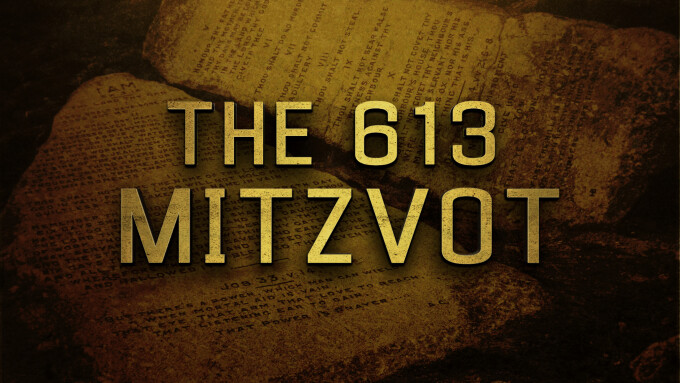The 613 Mitzvot: 31-35

We are often asked to do teachings on the 613 commandments found in the Jewish faith. Understandably, such a teaching or teaching series would be an immense undertaking. However, we thought we may be able to go through it, at least in part, in our blogs. This is an ongoing blog series that we will do at different times without any real schedule planned. We will not be going into great depth in this series.
The format for these blog posts will be simple. We will cite a traditional rabbinic commandment as found in the AENT (Aramaic-English New Testament), provide the Scripture that it is supposed to be based from, indicate if we agree that it is a commandment we can do today or if it is one that cannot apply today and then why or why not. Then we will give a few notes or thoughts as to why believe it can or cannot be applied today. Last time we looked at commandments twenty-one through twenty-five, this week we will take a brief look at five more.
Commandment: On Removing Unclean Persons from the Camp
Numbers 5:2-3 (ESV)
““Command the people of Israel that they put out of the camp everyone who is leprous or has a discharge and everyone who is unclean through contact with the dead. You shall put out both male and female, putting them outside the camp, that they may not defile their camp, in the midst of which I dwell.”
Notes:
While we do believe this is a legitimate commandment from our Creator, it is not something we can currently carry out today. One example is that the priests must examine leprosy on a person, but since an established Earthly priesthood is not currently organized and available to carry out this commandment we cannot follow it in that way.
Commandment: On honoring the Cohanim (Priests)
Leviticus 21:8 (ESV)
“You shall sanctify him, for he offers the bread of your God. He shall be holy to you, for I, the Lord, who sanctify you, am holy.”
Notes:
At this time, no Earthly Levitical priesthood is established so we cannot carry out this commandment.
Commandment: On the garments of the Cohanim (Priests)
Exodus 28:2-4 (ESV)
“And you shall make holy garments for Aaron your brother, for glory and for beauty. You shall speak to all the skillful, whom I have filled with a spirit of skill, that they make Aaron's garments to consecrate him for my priesthood. These are the garments that they shall make: a breastpiece, an ephod, a robe, a coat of checker work, a turban, and a sash.”
Notes:
As the previous commandment, this is another that we do not believe can be properly obeyed today. An established Earthly priesthood is not currently organized and available to carry out this commandment. For us to attempt to do so as things are would be doing them our own way and not His way.
Commandment: On Cohanim (Priests) bearing the Ark on their shoulders
Numbers 7:9 (ESV)
“But to the sons of Kohath he gave none, because they were charged with the service of the holy things that had to be carried on the shoulder.”
Notes:
We currently do not have the ark. The criteria does not present itself to carry out this commandment as prescribed in current state. Additionally, the sons of Kohath were Levites, but not priests. There were times the priests did carry the ark, such as when they crossed the Jordan with Joshua, but the sons of Kohath were the Levites responsible for carrying such things typically.
Commandment: On the holy anointing oil
Exodus 30:31 (ESV)
And you shall say to the people of Israel, ‘This shall be my holy anointing oil throughout your generations.
Notes:
As with the previous commandments, this is another that we do not believe can be properly obeyed today. The anointing oil referenced here is for specific things. A built temple does not currently exist till the 1000 year reign. The criteria will exist again (Ezekiel 40-48) to carry out this commandment. An established Earthly priesthood is not currently organized and available to carry out this commandment. For us to attempt to do so as things are would be doing them our own way and not His way.
We hope this has helped bring a little clarity to the seventh set of 5 commandments and their applicability to our lives today, at least as we currently understand them. Aside from ourselves, keeping the cultural understanding and Scriptural context are our greatest obstacle to understanding, and thus obeying, the ways of our Creator. Each day we must choose whether to obey or disobey thereby choosing whom we are serving.
Shalom
